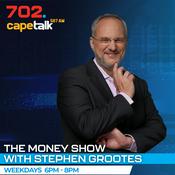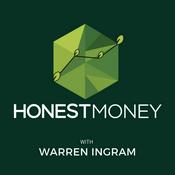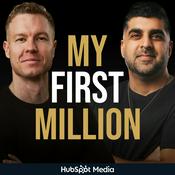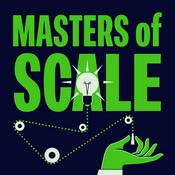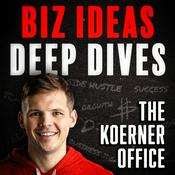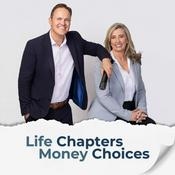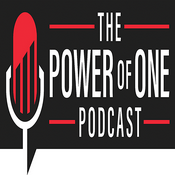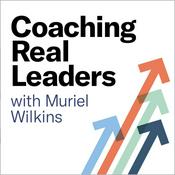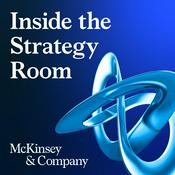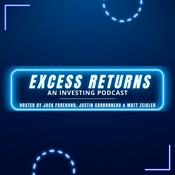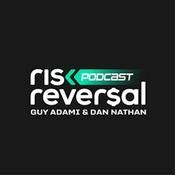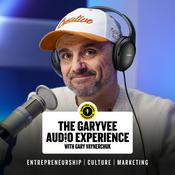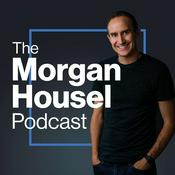143 episodes
- Advances in AI are occurring at a pace we haven’t seen before in Silicon Valley. How do we know what’s real versus hype? What does it mean for large software incumbents? And how are the top investors and builders thinking about the new possibilities? This week, we talk with two of my partners at 8VC, Alex Kolicich and Jack Moshkovich, who are on the ground working with the leading AI talent to get their perspective on what’s really happening.
Alex Kolicich is a Partner at 8VC, where he specializes in IT and Bio-IT investments. Prior, he was a Partner at Formation 8 and worked alongside Peter Thiel at Mithril Capital Management. Alex was also an engineer and early-product advisor at Clarium, Palantir, and Google. Jack Moshkovich began his career at 8VC and helps lead our investment practice alongside Alex out of San Francisco, where he focuses on enterprise software.
We begin with Silicon Valley’s most recent technological wave: smart enterprise. In 2013, we published our smart enterprise thesis, predicting the B2B software explosion that drove tremendous value creation over the past decade. Now, we’re entering the next landmark shift: the AI wave. Learn why AI is fundamentally disruptive (you can find our thesis here), and the enormous leap from data retrieval to automated decision making and from linear to non-linear problem solving. Next, we dive into the six layers of the AI investment stack, and why we are focused on level five: the application layer. We dissect the tremendous opportunities for AI-native upstarts, as well as the challenges — and upside — for smart enterprise pioneers that can reorient around AI. Finally, we discuss some of the key questions in the years ahead: When and where will we see massive productivity gains in the economy? Will LLMs become commodities, or is each frontier model sufficiently differentiated? And are we entering a bubble, or is the AI wave just getting started?
00:00 Episode intro
01:40 Smart enterprise thesis
04:00 Did enterprise software dramatically boost productivity?
08:30 Understanding the AI wave
11:45 Are LLMs becoming commodities?
17:10 OpenAI vs Anthropic vs Meta vs Grok
20:30 Frontier models vs enterprise incumbents
25:20 What did Palantir get right?
32:30 AI case studies/new possibilities
43:00 The most surprising aspect of the AI wave
46:10 Are we entering a bubble? Or just getting started?
52:40 Biggest concern with AI
58:00 Biggest reason for optimism
This is a public episode. If you would like to discuss this with other subscribers or get access to bonus episodes, visit blog.joelonsdale.com Ep 141: AI Hackers Are Here; Cybersecurity Legend Kevin Mandia Is Building the Answer
2026/2/04 | 38 mins.When Kevin Mandia’s phone rings, it’s often a Fortune 500 CEO or government leader with a billion-dollar problem. How did he become the go-to expert in cybersecurity? What new threats from AI led him back into the arena? And what is he building to protect the good guys?
Kevin began his career in the U.S. Air Force, defending the U.S. military from some of the earliest cyber attacks. He went on to found and lead Mandiant, scaling it into an industry leader which Google acquired in 2022 for over $5 billion. In 2013, he famously exposed China’s massive state-sponsored cyber espionage inside America. Kevin has also served on the National Security Telecommunications Advisory Committee (NSTAC) and the CISA Cybersecurity Advisory Committee. He recently launched Armadin to address new AI possibilities in the cyber domain.
To begin, Kevin takes us behind the scenes of the early cyber skirmishes in the 1990s, and what it was like confronting some of the first cyber incursions from Russia and China, as well as the rise of criminal cyber enterprises. In the early 2000s, Kevin noticed glaring gaps in conventional antivirus approaches and launched Mandiant. Learn how he quickly became the first person that CEOs and governments would call if they’d been hacked. After scaling Mandiant and exiting to Google, Kevin is now back in the arena building cutting-edge solutions to new AI cyber threats. He explains the dramatic increase in the productivity and sophistication of AI agents, and why it’s upending how we build cyber defenses. Find out what he’s most worried about in 2026, and what steps governments and CEOs need to take to secure their networks and infrastructure.
0:00 Episode intro
01:30 Kevin's journey into cyber; early attacks from Russia & China
05:00 The evolution of cyber espionage and crime
08:00 Founding Mandiant; why Fortune 500 CEOs call Kevin
13:30 What's it like getting hacked by Russia?
21:30 AI hackers are here; Kevin's warning
27:00 Protecting critical infrastructure; harnessing AI for cyber defense
31:30 Engineers vs AI agents
36:40 Optimism for the future
This is a public episode. If you would like to discuss this with other subscribers or get access to bonus episodes, visit blog.joelonsdale.comEp 140: SEC Chairman Paul Atkins on Making IPOs Great Again, Crypto's Comeback & New Rules for Retail Investors
2026/1/26 | 46 mins.America’s capital markets are the envy of the world, but in recent years, misguided policies have driven innovation offshore and stifled the number of companies going public. SEC Chairman Paul Atkins is reversing course. What’s his plan to make IPOs great again? What will it take for America to become the crypto capital of the world? And does he think we should expand access to private markets for retail investors?
This week, we’re honored to feature a conversation with Paul Atkins, Chairman of the Securities and Exchange Commission. He also served as a commissioner at the SEC from 2002 to 2008, and worked on the staff of two SEC chairmen from 1990 to 1994. Prior to returning to the SEC in 2025, Chairman Atkins was the founder and chief executive of Patomak Global Partners, a financial services firm he founded in 2009.
We begin with Chairman Atkins’ visit to Texas, the significance of Texas’ new business courts, and the importance of innovation in our financial markets. Whereas his predecessor, Gary Gensler, took an adversarial, regulation-by-enforcement approach, he’s embracing new technologies and regulatory clarity. In this vein, the Chairman lays out his strategy for making IPOs great again. Learn why the number of public companies has dropped by nearly half since 2007, and how Chairman Atkins is reforming the rules around litigation and corporate governance to deter activists from harassing America’s builders. We also discuss President Trump’s vision for making America the crypto capital of the world, and what it looks like to provide clear guidelines that promote innovation and protect investors. Finally, we explore the steps he’s taking to enable retail investors to access private markets and other alternative assets.
0:00 Episode intro
1:35 Texas' new business courts / evolution of U.S. markets
7:20 The SEC's new approach to crypto
16:00 Making IPOs and public companies great again
25:00 Weaponization of shareholder proposals and ESG
32:10 National security concerns / China's bad actions
36:30 New rules for retail investors & private companies
44:35 Optimism for America's future
This is a public episode. If you would like to discuss this with other subscribers or get access to bonus episodes, visit blog.joelonsdale.comEp 139: Make Government Beautiful & Functional Again with America's Chief Design Officer Joe Gebbia
2026/1/20 | 38 mins.First, he digitized the entire federal retirement process, cutting it from six months to a few days. Now, he’s overhauling the U.S. government’s online presence, one website at a time. And Joe Gebbia has been in Washington, D.C. less than a year! Learn why he stepped up to serve, and the impact our best minds can have on D.C., in a conversation with our nation’s first Chief Design Officer.
As co-founder of Airbnb, Joe turned a living-room experiment into a multi-billion dollar global brand. Then, he launched Samara, helping homeowners reimagine their yards with state-of-the-art Accessory Dwelling Units. He also sits on the boards of Airbnb, Airbnb.org, and Tesla. Last February, he joined Elon Musk and the DOGE team in D.C. to overhaul retirement for federal workers, before setting his sights on modernizing the nation’s 27,000 .gov websites.
We begin with Joe’s journey to D.C., and how a former Democrat came to support President Trump and take on problems that have plagued government for decades. His first challenge: federal retirement and “the mine” — a storage facility inside a Pennsylvania mountain that houses all federal employees’ retirement paperwork. Learn how Joe worked alongside career civil servants to transform a broken, six-month slog into a digital-only process that takes mere days. Now, he’s set his sights even higher: overhauling the government’s digital portals and delivering an Airbnb-like experience, starting with the Trump Gold Card, TrumpRX.gov, and, more recently, RealFood.gov and TrumpAccounts.gov. We go inside the Oval Office and Joe reveals his conversations with Pres. Trump on the importance of aesthetics, functionality, and design. Drawing inspiration from President Nixon’s beautification initiative, he worked with Pres. Trump to launch the government’s first digital makeover. It’s inspiring to see Joe’s leadership, and if you, or someone you know, wants to join his elite team of designers and engineers, there are a few spots remaining.
00:00 Episode intro
01:15 Lifelong Democrat to Trump White House
07:50 Text from Elon / Joining DOGE
10:20 “The Mine” & fixing federal retirement
13:50 “What if we did it in a week?”
21:45 What happened to DOGE?
23:30 Becoming America’s Chief Design Officer
26:45 Inside the Oval Office with Pres. Trump
31:00 Fixing 27,000 .gov websites
34:00 Making America beautiful & functional again
This is a public episode. If you would like to discuss this with other subscribers or get access to bonus episodes, visit blog.joelonsdale.comEp 138: AI, Space-Based Interceptors & the Bleeding Edge of Warfare with Pentagon R&D Chief Emil Michael
2026/1/09 | 29 mins.Emil Michael directs the U.S. military’s research and development of advanced technologies. Previously, he led global business growth for Uber — one of the fastest moving organizations in Silicon Valley history. Can he bring that startup speed to the Department of War? What are the six critical areas of innovation he’s prioritizing? And how is he investing in these key technologies to bolster the defense industrial base?
We’re honored to go inside the Pentagon for a special episode with Emil Michael, Chief Technology Officer and Under Secretary of War for Research & Engineering. He oversees the Defense Advanced Research Projects Agency (DARPA), the Office of Strategic Capital, and other critical organizations. Prior, he helped scale multiple businesses, including D-Wave Systems, Tellme Networks, and Uber Technologies. Earlier in his career, he also served as a White House Fellow and later on the Defense Business Board.
We begin with Emil’s decision to join the Trump administration, and why he believes this is a generational opportunity to transform the culture and pace of innovation inside the Pentagon. Learn how he rolled out GenAI.mil (Google’s Gemini) to the entire force — roughly three million people — in a matter of months. Next, we dive into his decision to pare down the all-important Critical Technologies List, which drives the Pentagon’s R&D spending, from 14 areas to six. Then, we discuss the Department’s shift to a “commercial first” approach and what that means for the defense industrial base. Finally, we cover his priorities for the Office of Strategic Capital, plus how he’s thinking about talent and encouraging our best and brightest to step up and serve the country.
[NOTE: This episode was recorded prior to the United States capture and extradition of Nicolas Maduro]
00:00 Episode intro
01:40 Time to disrupt the Pentagon
04:20 What did you learn from your first threat briefing?
06:30 Can you bring Uber speed to Dept of War?
08:45 Redefining the Critical Technologies List
13:30 Hypersonics and Golden Dome
18:00 Commercial first approach and changing the culture
23:00 How to recruit the best talent into government
28:45 Optimism for the future
This is a public episode. If you would like to discuss this with other subscribers or get access to bonus episodes, visit blog.joelonsdale.com
More Business podcasts
Trending Business podcasts
About Joe Lonsdale: American Optimist
American Optimist, hosted by Joe Lonsdale: entrepreneur, investor, and founder of four multi-billion dollar companies and other mission-driven organizations. American Optimist is an alternative to the fear, cynicism, and zero-sum thinking in mainstream media. Learn from the innovators and leaders who are solving our nation’s most pressing challenges, and doing it in a way that will lift everyone up. Hope should dominate our discourse, and American Optimist will show you why. blog.joelonsdale.com
Podcast websiteListen to Joe Lonsdale: American Optimist, A Bit of Optimism and many other podcasts from around the world with the radio.net app
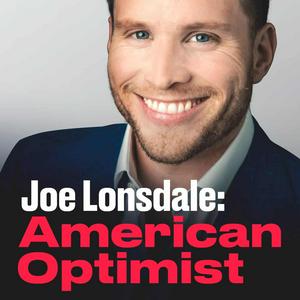
Get the free radio.net app
- Stations and podcasts to bookmark
- Stream via Wi-Fi or Bluetooth
- Supports Carplay & Android Auto
- Many other app features
Get the free radio.net app
- Stations and podcasts to bookmark
- Stream via Wi-Fi or Bluetooth
- Supports Carplay & Android Auto
- Many other app features


Joe Lonsdale: American Optimist
Scan code,
download the app,
start listening.
download the app,
start listening.




